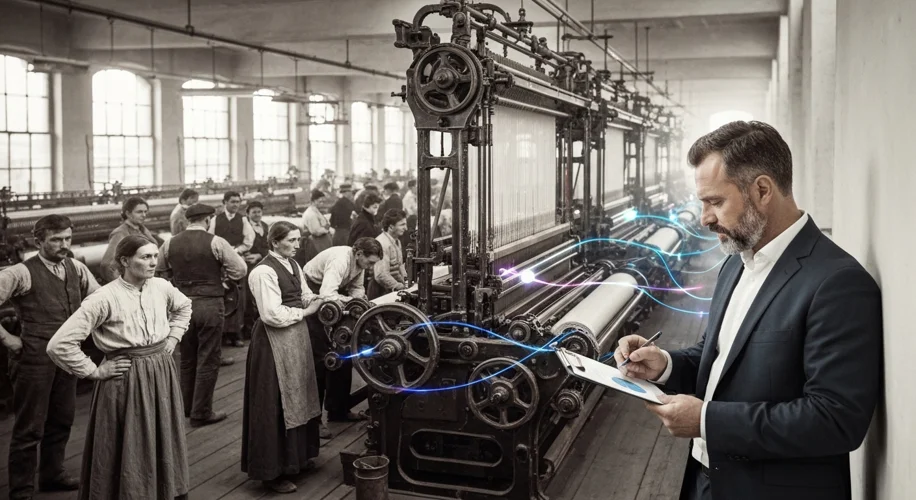As an archivist, I’ve spent decades sifting through the remnants of technological history. It’s fascinating how often the challenges and anxieties of today echo the past. The current conversation around Artificial Intelligence automating tasks within the consulting industry reminds me of a much older, yet remarkably similar, story: the rise of automation and its impact on human labor.
We often hear about AI ‘displacing’ consultants, and it’s easy to get caught up in the idea that this is entirely new. But let’s look back. In the early 19th century, textile workers in England, known as Luddites, famously protested against the introduction of new machinery during the Industrial Revolution. They feared, quite reasonably, that these machines would render their skilled craftsmanship obsolete, leading to unemployment and economic hardship.
Their fears weren’t entirely unfounded. The transition was difficult. We saw a significant shift from skilled artisans, who once produced goods with individual care, to factory systems that relied on machines for mass production. This wasn’t a simple swap; it was a fundamental reshaping of work and society. The skills valued changed, and many found themselves needing to adapt to entirely new ways of earning a living.
This pattern continued throughout the 20th century with the advent of computers and further factory automation. Tasks that once required manual calculation or meticulous human input were gradually taken over by machines that could perform them faster and often more accurately. Think about the transition from manual drafting to computer-aided design (CAD) or from human bookkeepers to accounting software. Each step brought efficiency but also necessitated a retraining or redefinition of professional roles.
Now, we see AI entering the consulting world. AI can now analyze vast datasets, identify patterns, generate reports, and even offer strategic recommendations with remarkable speed. This mirrors the factory floor where machines took over repetitive and complex calculations. What this means for consultants is a shift away from tasks that AI can perform efficiently. The emphasis will likely move towards areas where human judgment, creativity, emotional intelligence, and complex problem-solving in novel situations are paramount.
The technology itself isn’t inherently good or bad; it’s a tool. The challenge, as it has been throughout history, lies in how we adapt to its introduction. Just as the Industrial Revolution eventually led to new types of jobs and industries, the AI revolution will undoubtedly reshape the consulting landscape. The key for individuals and organizations will be understanding which human skills remain uniquely valuable and cultivating those for the future. It’s a familiar echo, a reminder that technological progress, while often disruptive, has always been a story of human adaptation.

